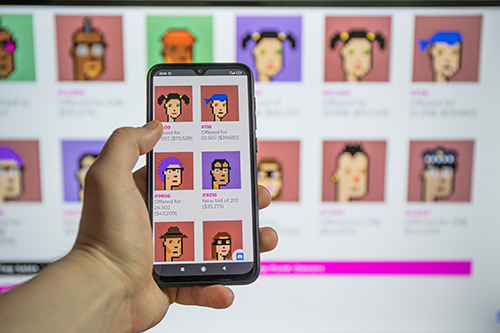By Chris Mahony (Senior Communications Officer), Published
Fintech is “leading the charge” in providing credit to people previously excluded from such services, a leading finance academic said while delivering the annual Henry Thornton Lecture at Bayes this week.
Professor Manju Puri from Duke University in North Carolina, set out the conclusions she and her research partners reached about the impact of India’s “unique” embrace of open banking. In the UK just the nine largest banks are mandated to share data; in Singapore and the US there is no explicit mandate yet.
Professor Puri explained: “Some 49 countries around the globe have adopted open banking, but the policy mandate varies dramatically across countries. In the UK, only the nine largest banks are mandated to share data; in Singapore and the US there is no explicit mandate yet. India is a significant exception in that it has fully adopted open banking. So, the customer owns the data and the customer can give/get permission to share the data with any financial institution. The customer is king."
That is why, she said, it is closest to realising a key ambition for open banking – that it would boost financial inclusion for many of the 1.4 billion people without access to credit, increase competition by breaking information monopolies and increase innovation.
Choice in sharing
People in India can share their digital transactions data in real time with whichever institution they choose – whether that’s a bank, a non-bank, a fintech or a financial intermediary.
“Clearly banks and financial institutions are at the heart of this. They provide the financial data and the services – the payment and banking data really comes from them. They are third party providers.”
She compared the market in India to the railways – a free public infrastructure of track, which a wide range of organisations and individuals can use.
“We found that with open banking, along with this digital payment infrastructure, the credit market expands. Having a bank account is a necessary but not sufficient condition. It doesn't expand credit on its own.
“Now you have open banking, and verifiable digital transactions that can be shared easily. That's like a superpower. So, you take the bank account, combine that with the digital payment history and boom: you see a lot more credit.”
“In particular, you see an increase in credit to the underbanked and marginal borrowers. It is fintech that is leading the growth. We found that a rising tide lifts all boats. Everyone is giving credit but fintech is sort of leading the charge. Regions where many people were previously unbanked are seeing an increase in credit, again, led by fintechs.
“However, to have a digital payment history, it is important to have cheap and good internet connectivity. And so, regions with good internet connectivity see a growth in credit.”
Where researchers studying access to credit have largely often relied on data from just one bank or website, Professor Puri’s lecture drew on a study using data for the whole of India.
It appears to ease concerns that “incumbent banks” faced with losing their monopoly would have less incentive to invest in relationship specific assets – thereby reducing the credit supply. The increased competition due to new market players, innovation, and screening technology is more than compensating for any such retrenchment by established banks – ensuring easier access to credit for under-served communities.
Welcoming Professor Puri to Bayes, Professor Barbara Casu, Deputy Dean and Director of the School’s Centre for Banking Research which has hosted the lecture series since 1979, noted that Henry Thorton had written a landmark book on British credit during the Napoleonic wars. Professor Puri, she noted, had taken a rather wider view.

